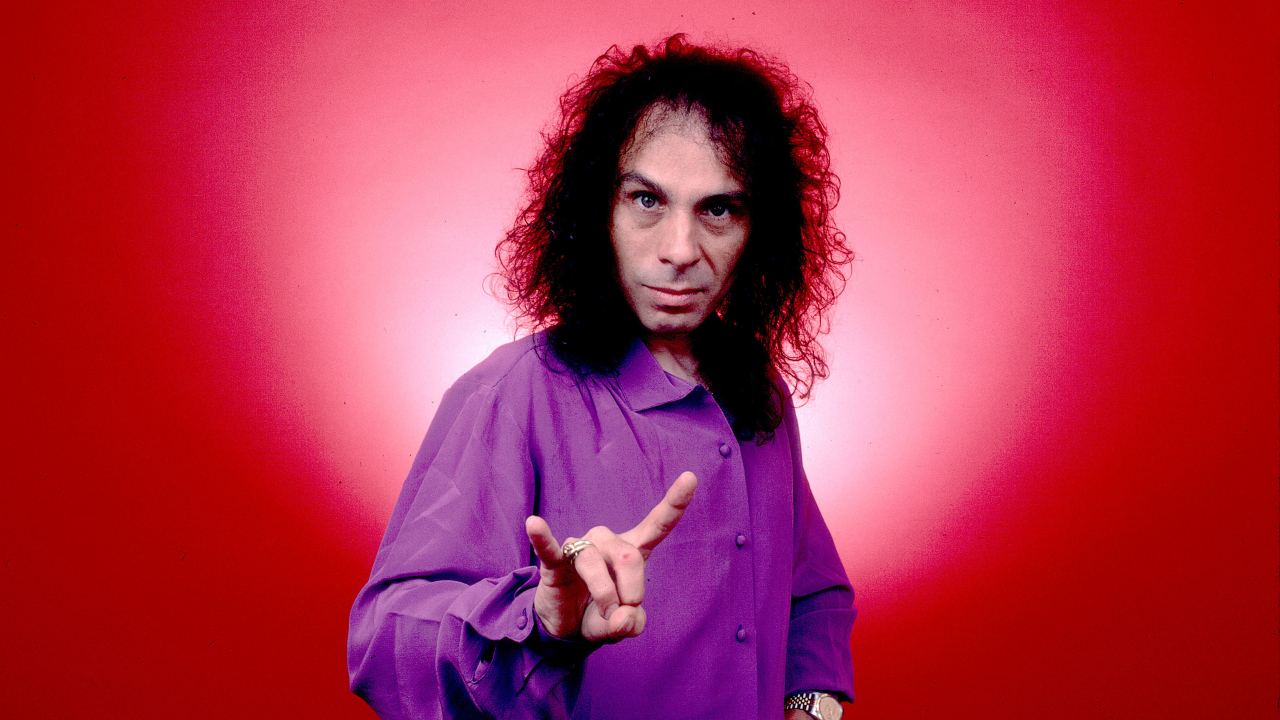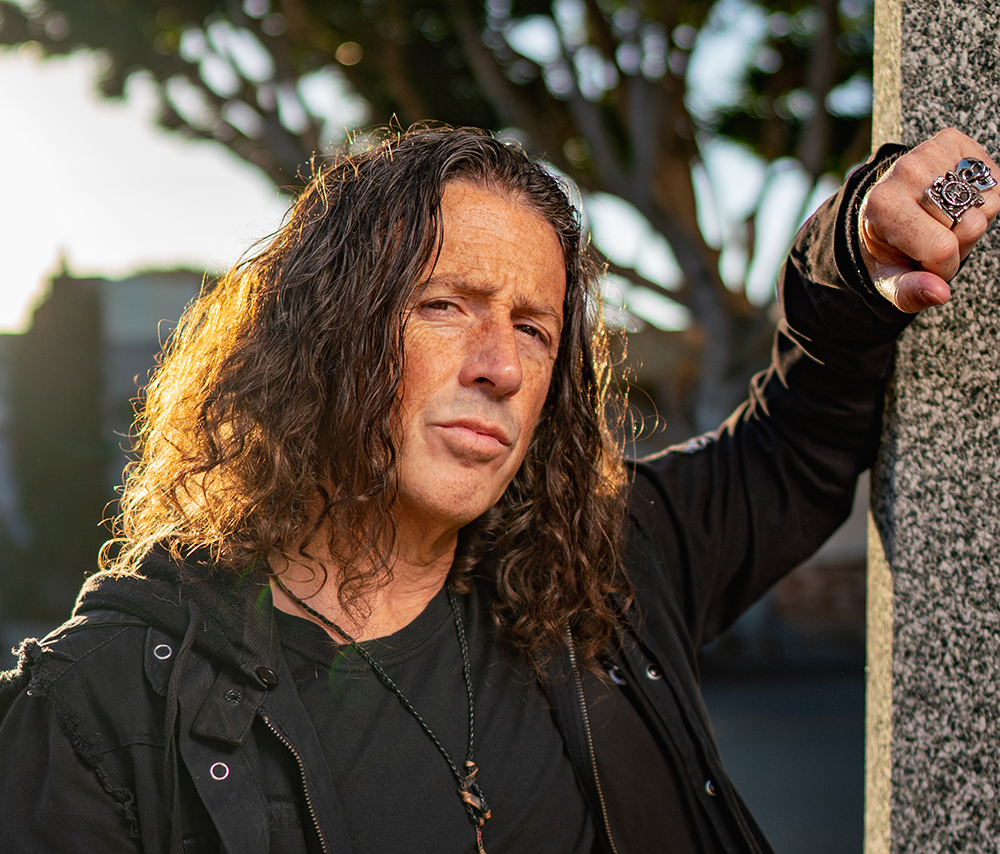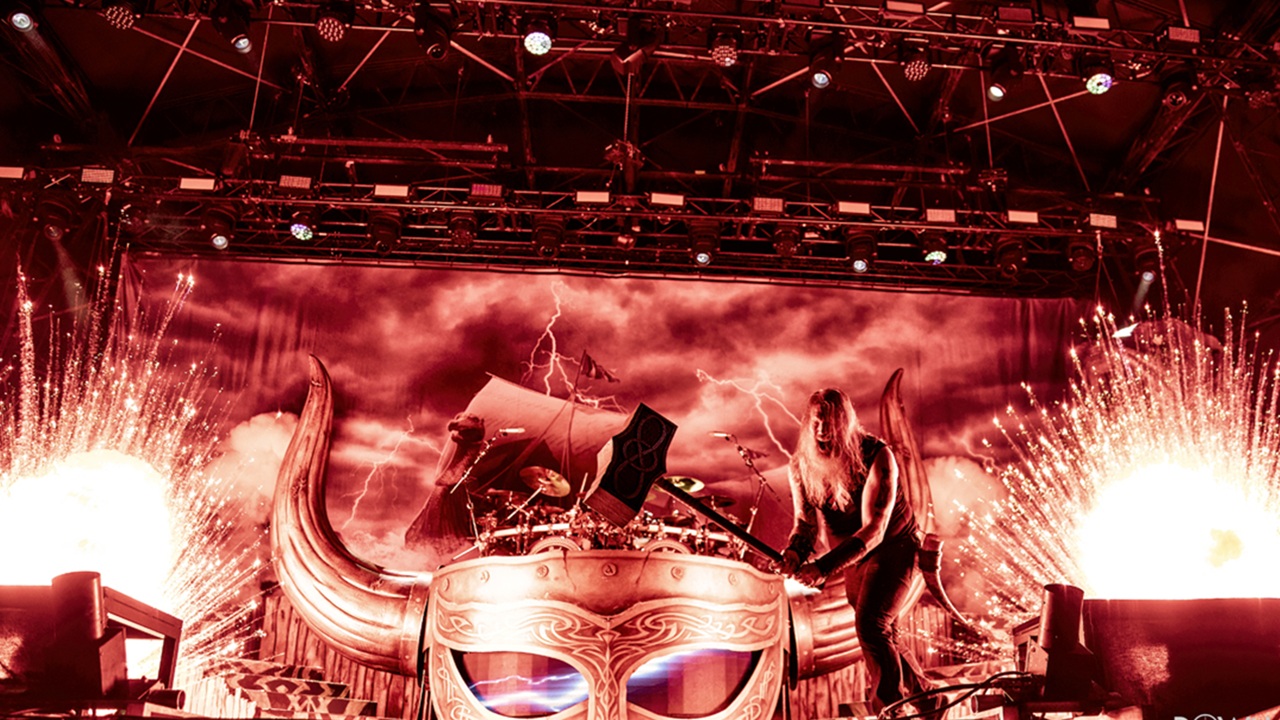Ten things we learned from the emotional new Ronnie James Dio film, Dreamers Never Die
From Dio's school days to his final hours, here are our takes from this year's must-see metal documentary

Select the newsletters you’d like to receive. Then, add your email to sign up.
You are now subscribed
Your newsletter sign-up was successful
Want to add more newsletters?

Every Friday
Louder
Louder’s weekly newsletter is jam-packed with the team’s personal highlights from the last seven days, including features, breaking news, reviews and tons of juicy exclusives from the world of alternative music.

Every Friday
Classic Rock
The Classic Rock newsletter is an essential read for the discerning rock fan. Every week we bring you the news, reviews and the very best features and interviews from our extensive archive. Written by rock fans for rock fans.

Every Friday
Metal Hammer
For the last four decades Metal Hammer has been the world’s greatest metal magazine. Created by metalheads for metalheads, ‘Hammer takes you behind the scenes, closer to the action, and nearer to the bands that you love the most.

Every Friday
Prog
The Prog newsletter brings you the very best of Prog Magazine and our website, every Friday. We'll deliver you the very latest news from the Prog universe, informative features and archive material from Prog’s impressive vault.
This fall sees the release of Dio: Dreamers Never Die, the official feature documenting the life of one of metal’s most beloved and influential figures, Ronnie James Dio. Executive-produced by his widow and longtime manager, Wendy Dio, the documentary charts a linear trajectory, beginning with Dio’s emergence into the world as Ronald Padavona in upstate New York, through all of the ups and, perhaps more insightfully, downs, that defined his storied career. Gathering a rogues gallery of commenters including friends, bandmates and observers, the story unearths rich detail behind the man, his bands and his legacy. We've seen it, and here are ten things we learned.

Young Dio seemed headed for virtually any career other than rock 'n' roll stardom.
Nicknamed “Pigmy” by his mates, Ronald Padavona attended high school in the 1950s, emerging as a smart and confident young man with good grades and plenty of hobbies. Among his extracurricular pursuits, Pigmy enjoyed the Latin Club and served as class president. Musically, he’d studied trumpet since age five and he belonged to the Senior Band and the Orchestra. Somewhat tellingly, he chose this quote from Aristotle for his yearbook profile: "There is no great genius without a mixture of madness.”
Ronnie only agreed to sing after the rest of his band failed miserably at the task
Growing up in the 50s, the only living rock icons were a young Elvis Presley and clean cut pop stars like Bill Haley and the Comets. Consequently, Dio’s first group, Ronnie and the Redcaps, played the kind of croony dinner music that was all the rage at the time, with Ronnie on bass. Look up tracks like An Angel Is Missing for a taste of the sort of music he first played, and if this is your first time, be prepared for some moderate mind-blowing. In the documentary, Dio explains through archival footage that, while he’s obviously a prodigiously-gifted vocalist, “I just wanted to play music and not sing,” but because nobody else worked out as a vocalist, he reluctantly stepped into the role.
Dio barely survived a fatal van crash with one of his early bands
In the late 60s, Ronnie played in a band called The Elves. Through first-hand accounts, the documentary recounts the night in 1968 when The Elves were driving home to upstate New York from a gig in Connecticut. A drunk driver smashed into their van, killing guitarist Nick Pantas and leaving Dio and his cousin/bandmate Dave Feinstein in hospital. Ronnie smashed into the windshield and tore his scalp, requiring over one hundred stitches. Writer Mick Wall, who spent a great deal of time with Dio over the years, comments that it was very much a make-or-break moment, with Dio faced with choosing a safer career path as a pharmacist, or plunging forward in music. In many ways, Wall states, the experience only galvanised his resolve to succeed.
Deep Purple can lay (some) claim to Dio’s early success
Eventually calling themselves Elf, the band secured an audition with Columbia Records in the early-70s, in front of legendary label boss Clive Davis. Small, bearded and with straggly long hair, Elf looked very much as their name suggested, resembling a quartet that had tumbled out of Middle Earth more than rock stars. Nonetheless, before a roomful of 20 suits sipping white wine, Elf delivered one haymaker after another, showcasing their innate power and sharp songwriting, which by now was more in line with the rock mainstream of the mid-to-late 60s. In the audience were Deep Purple’s Roger Glover and Ian Paice, who produced Elf’’s eponymous debut. Helping to shape their sound and show them the ropes of professional recording, Deep Purple then took Elf on the road as their support act for a number of key tours.
Wendy Dio ended up with Ronnie despite her first impression
Wendy arrived in the US in 1974 and found work in a diner while working as an extra in films such as the cult favourite, Death Race 2000. The documentary serves up a wonderful clip of Wendy, clad in all-white, massaging a character in a futuristic lair as a young Sylvester Stallone rocks up and starts spitting lines. She eventually met Ronnie at the Rainbow Bar and Grill, on L.A.’s Sunset Strip, and later accompanied him to a house party. Her first reaction, she says, was, “He’s too short for me,” but she explains that as time passed, his love of animals, books, movies and his massively warm personality won her over. She eventually became his wife and, later, his longtime manager, and she has carried on his legacy ever since.
Dio left Rainbow because he was never interested in writing songs about relationships
In 1975, guitar virtuoso Ritchie Blackmore recruited Dio to front his new band, Rainbow. Like all bands, Blackmore was dying to strike it big in the States and with Dio, Rainbow managed to amass terrific success seemingly everywhere but the US. Blackmore decided they needed to write songs about relationships and Dio simply wasn’t having it. He preferred writing songs of personal quest and empowerment, rendered through themes of adventure and fantasy. “I said no, I wasn’t going to write love songs,” says Dio in an old interview. Sticking to his guns led to his dismissal and replacement by singer Graham Bonnet. With Bonnet, Rainbow released a cover of Russ Ballard’s Since You Been Gone, which hit number 6 in the UK and which generated a good bit of mainstream radio play in the US, though never cracking the top 40.
Sign up below to get the latest from Metal Hammer, plus exclusive special offers, direct to your inbox!
Ronnie’s departure from Sabbath remains as murky as always
The documentary gathers Tony Iommi, Geezer Butler and Bill Ward to comment on their time in Sabbath with Dio. It’s engaging to hear their comments about this pivotal moment in their careers, although there’s very little specificity around the reasons for Dio’s departure in 1982. Iommi notes the pressures of first joining Sabbath and then following the walloping success of 1980’s Heaven And Hell. “It put him in a tough spot, really,” says Iommi, also stating that when they recorded the live album, “he did get...upset about things.” Allegedly it was differences over the mixing of that album that led to the split, though the differences aren’t specifically addressed. “A lot of time, success breeds problems, and that happened,” says Dio.
Dio hated Rainbow In The Dark (at first).
In 1982, having formed Dio, his solo project, with drummer Vinny Appice, bassist Jimmy Bain and a young Vivian Campbell (later of Def Leppard fame), the band decamped to Sound City to record their debut — what would eventually become Holy Diver. Appice plays a cassette demo of an early version of Rainbow In The Dark, pre-keyboard, and in an archival interview, Dio reveals that his initial take was less-than-enthusiastic. “Rainbow In The Dark...it’s a song that I really disliked,” he says, “and when it was finished, I announced to everyone that I was going to take a razor blade and just cut the take up. So I went for the razor blade and they went ‘No! No! No! No! Don’t do that!’ Ha ha! So I thank them over and over and over. Kudos to them forever and ever.”
Dio could be a ruthless taskmaster
For fans, Dio was always available for a chat or a photo, friendly and accommodating to the end. In bands like Rainbow and Black Sabbath, however, Dio’s refusal to concede certain artistic or business elements led to returns to the unemployment line, however brief. As the head of his own band, he finally held sway to see that his vision took shape however he needed it to be. And when Dio formed the Hear ‘N Aid heavy metal fundraiser project in 1986, he brought those exacting standards to the cast of metal illuminati gathered for the single. “I’ll admit it,” says Don Dokken, “I was scared shitless. I’m playing with Ronnie James Dio!” A cringeworthy clip sees Dio in the control room, overseeing Dokken give a vocal take that Dio views as sub-par. “Does Dokken really rhyme with Rockin’?” Dio snidely asks, “I’m confused...” It's a deliciously petty jibe that hammers home Dio’s unflinching expectations for quality balanced against his lesser concern for the feelings of his colleagues.
Dio lived his final days with grace and dignity
One of Dio’s old producers has an emotional moment as he recalls Dio calling him and saying that he’d like to record a song. This was after Dio’s public diagnosis of stomach cancer and impending passing. The producer thought it might be the whole band, but it was just Ronnie and a piano, singing This Is Your Life, which can be heard on the 2014, Grammy-winning Dio tribute album of the same name. Dio’s doctor had announced the diagnosis with, “It’s not good news,” and Wendy tells how, in that moment, it was Dio giving comfort to her instead of the other way around. Though experimental drugs had some side effects, he never lost his voice, she says, and at 7:15 a.m on May 16, 2010, he sat up in his hospital bed, looked at Wendy, who was holding his hand and then sank back and passed away at the age of 67. Gone too soon, but never forgotten.
DIO: Dreamers Never Die will be released in theaters worldwide for two days only, September 28 and October 2, via BMG and Trafalgar Releasing. Premieres will be held in Los Angeles and London. The two-day cinema run will also include outtakes available only to the theatrical audience. Tickets for Dio: Dreamers Never Die are on sale at DioDreamersNeverDie.com. Word on the post-theatrical run is forthcoming.
Hailing from San Diego, California, Joe Daly is an award-winning music journalist with over thirty years experience. Since 2010, Joe has been a regular contributor for Metal Hammer, penning cover features, news stories, album reviews and other content. Joe also writes for Classic Rock, Bass Player, Men’s Health and Outburn magazines. He has served as Music Editor for several online outlets and he has been a contributor for SPIN, the BBC and a frequent guest on several podcasts. When he’s not serenading his neighbours with black metal, Joe enjoys playing hockey, beating on his bass and fawning over his dogs.

